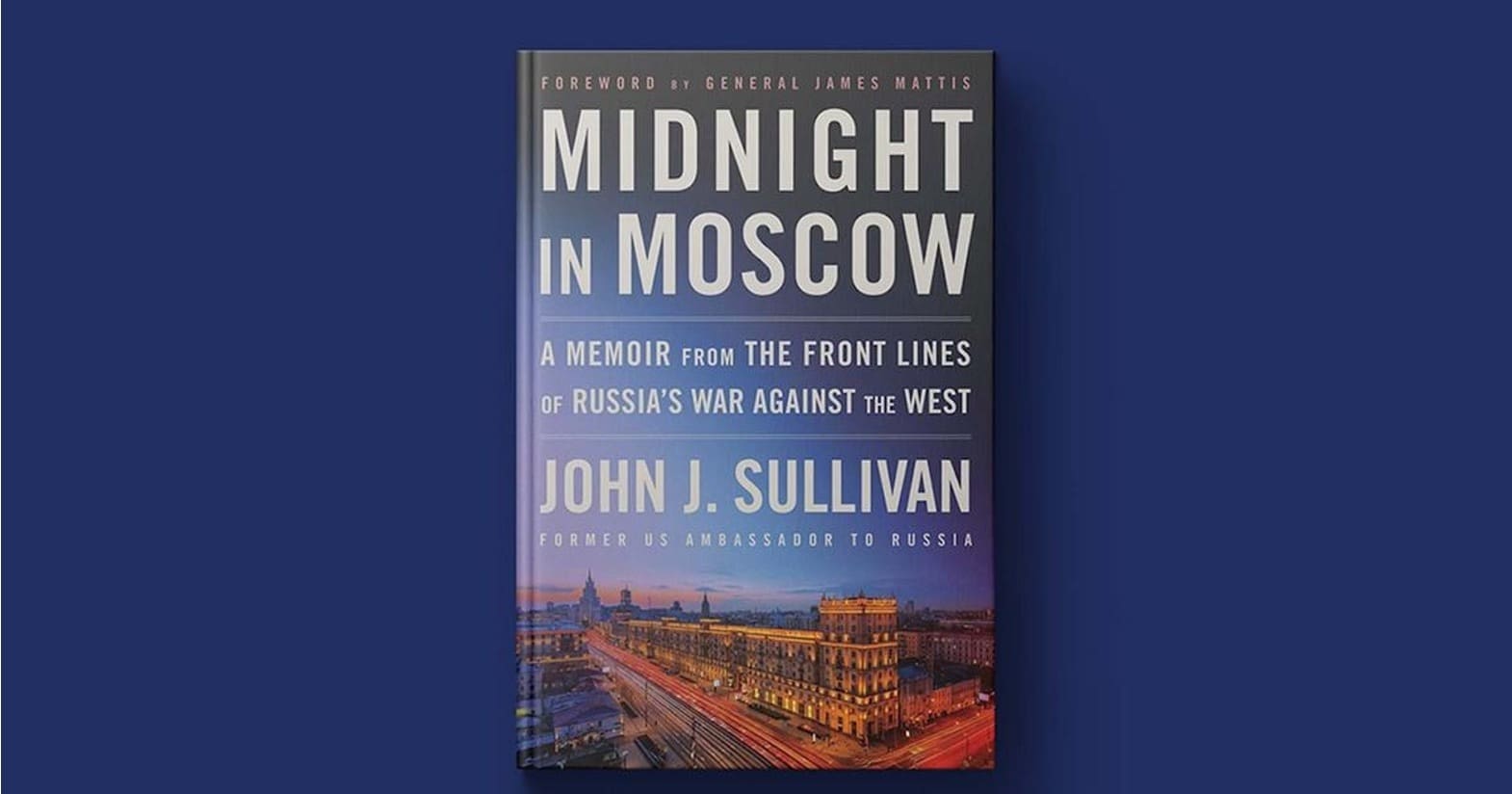
Key Takeaways from a memoir by a senior diplomat, former U.S. Ambassador to Russia John J. Sullivan, published in August, 2024.
Midnight in Moscow: A Memoir from the Front Lines of Russia’s War Against the West topped the reading lists of foreign policy buffs, as the first behind-the-scenes account of the events leading up to Russia’s invasion of Ukraine, told by a senior U.S. diplomat. The book, however, is also a must read for business leaders, as it provides a gripping, first-hand account of navigating diplomacy and business in one of the world’s most challenging environments. Sullivan’s experiences as U.S. ambassador to Russia during a tumultuous period in very recent modern history offer valuable insights for businesses operating in emerging markets. Here are some key takeaways:
Operating amidst volatility and political risk
One of the most crucial lessons Sullivan conveys is that political risk is ever-present in emerging markets. The actions of Russian President Vladimir Putin’s regime, particularly leading up to the 2022 invasion of Ukraine, serve as a stark reminder of how quickly geopolitical landscapes can change. The signs of a transition from an emerging nation with a booming economy, open to international business, to an inward-focused repressive regime can be difficult to spot. Sullivan describes how “Russia’s diplomatic posturing was performative, designed to mislead foreign counterparts while it prepared for war.” For businesses, this highlights the importance of staying informed about and sensitive to political shifts, however slight they might seem at the beginning.
Understanding the value of local expertise
Operating in any emerging market requires more than just a deep understanding of the country’s business landscape, consumer dynamics and regulatory framework. Sullivan emphasizes that local expertise is also absolutely critical for navigating complex and often opaque systems. “Having reliable, local partners who understand the nuances of doing business in Russia was indispensable to keeping operations afloat,” he says. Working with local colleagues, partners, consultants, and cultural experts is not just a strategy for success, but an important potential safeguard against unexpected challenges.
Navigating the local judiciary
Sometimes, however, even experienced players with a wealth of local experience can get it wrong. Sullivan details how the absence of an independent judicial system – a common problem for developing markets – can severely impact foreign business, citing the bogus legal case against Michael Calvey, a high-profile American investor. “The Russian Government had arrested the most successful and prominent U.S. business leader and investor in Russia, Michael Calvey, on a phoney charge’’ in 2019 amid a commercial dispute, Sullivan writes. Even though Calvey was able to eventually clear his name and exit his investments in the country, his “case was a sobering reminder of how justice in Russia is often determined by political interests rather than facts,” according to Sullivan. Businesses should factor in these risks, knowing that they may face unpredictable legal environments where corruption and political influence override fairness and facts.
Being prepared for sudden changes
The unpredictability of political regimes, as illustrated by the sudden and shocking escalation of the conflict with Ukraine, reinforces the need for agility. Sullivan describes how Western businesses were caught out by the news of Russia’s attack on Ukraine and had to abruptly halt operations and evacuate employees, as economic sanctions came into effect. Sullivan recalls his meetings with members of the American Chamber of Commerce in Moscow, where many executives of international companies were questioning the likelihood of war despite U.S. intelligence pointing to its imminent start. Many of those who didn’t doubt the evidence, however, were also caught out by how quickly tragic events unfolded. “We knew the invasion was coming, but the speed with which it disrupted everything—businesses, supply chains, and lives—was staggering,” Sullivan writes. Companies must have contingency plans, including market exit strategies, staff evacuation protocols, and asset protection measures, for sudden shifts that may occur.
Throughout the book, a key lesson for business emerges: succeeding in challenging environments requires not just economic savvy but an understanding of the broader geopolitical, cultural, and legal landscapes. Sullivan’s memoir offers critical insights, from preparing for sudden political upheavals to understanding the limitations of legal systems in developing markets, making Midnight in Moscow a must-read for all business leaders navigating challenging markets.






